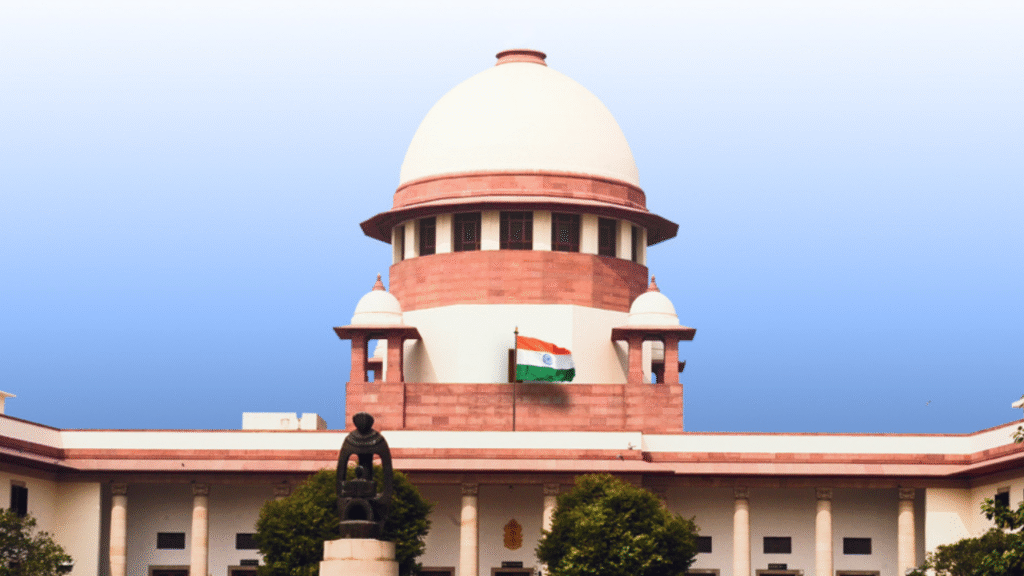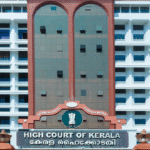MOTOR VEHICLES ACT, 1988 – ACCIDENT CLAIMS – QUANTUM OF COMPENSATION – CONTRIBUTORY NEGLIGENCE – NOTIONAL INCOME OF ENGINEERING STUDENT – LIABILITY
(2025) 7 SCD 87 : 2025 INSC 905
Appeal against Madras High Court’s reduction of compensation in a motor accident case.
Brief Facts:
On January 7, 2017, the appellant, a 20-year-old 3rd-year engineering student, was involved in an accident where a car ahead suddenly braked, causing the appellant to collide with it and fall.
A bus coming from behind drove over the appellant, leading to the amputation of his left leg during treatment, resulting in 100% functional disability.
The car and bus were insured by Respondent No. 3 and Respondent No. 1, respectively.
Tribunal’s Findings:
Calculated compensation: Rs. 91,62,066/-.
Held appellant 20% contributorily negligent, making Rs. 73,29,653/- payable by Respondent No. 1 (bus insurer).
Exonerated the car insurer.
Determined negligence ratio: Appellant 20%, Bus driver 80%.
Fixed attendant charges at Rs. 18 lacs.
Granted Rs. 2.5 lacs for loss of marital prospects.
Took appellant’s notional income as Rs. 15,000/- per month.
High Court’s Findings:
Reduced payable compensation from Rs. 73,29,653/- to Rs. 58,53,447/-.
Reduced attendant charges from Rs. 18 lacs to Rs. 5 lacs.
Fixed liability: Car driver 40%, Bus driver 30%, Appellant 30%.
Granted Rs. 5 lacs for future medical expenses.
Affirmed Tribunal’s notional income of Rs. 15,000/-.
Affirmed Rs. 2.5 lacs for loss of marital prospects.
Supreme Court’s Decision and Rationale:
1. Contributory Negligence:
Affirmed that the accident occurred due to the sudden stoppage of the car.
While the appellant was negligent for not maintaining sufficient distance (relying on Rule 231 of Road Regulation Rules 1989) and driving without a valid license, the car driver’s sudden braking on a highway without warning was the root cause.
Revised the liability for negligence: Appellant 20%, Car driver 50%, Bus driver 30%.
2. Quantum of Compensation:
Notional Income:
Noted that the appellant was a 3rd-year engineering student with a bright future.
Referred to Navjot Singh v. Harpreet Singh, 2020 SCC OnLine SC 1562, which stated that the notional income of an engineering student should not be equivalent to an unskilled worker and campus recruits are offered at least Rs. 20,000/- per month.
Increased the appellant’s monthly notional income to Rs. 20,000/-.
Calculated Loss of Income as Rs. 60,48,000/- using Rs. 20,000/- as notional income, 40% future prospects, and a multiplier of 18 (as per Sarla Verma v. DTC and National Insurance Co. Ltd. v. Pranay Sethi).
Attendant Charges:
Found the High Court’s reduction of attendant charges from Rs. 18 lacs to Rs. 5 lacs to be without cogent reasons.
Noted that the appellant, having lost his entire left leg from the waist downwards, would require lifelong assistance.
Restored the attendant charges to Rs. 18,00,000/- as fixed by the Tribunal.
Loss of Marital Prospects:
Increased the compensation under this head from Rs. 2.5 lacs (granted by Tribunal and High Court) to Rs. 5,00,000/-.
Future Medical Expenses:
Affirmed the High Court’s grant of Rs. 5,00,000/- for future medical expenses.
Other Heads: Agreed with the concurrent findings for Pain & Sufferings, Discomfort, Extra Nourishment, Medical Bills, Transportation, and Damage to Clothing.
Total Compensation Awarded:
The Supreme Court determined the total compensation to be Rs. 1,14,24,066/-.
After deducting 20% for contributory negligence (Rs. 22,84,813/-), the payable compensation to the appellant is Rs. 91,39,253/-, along with interest at 7.5% per annum from the date of filing the claim petition.
Liability:
The liability for the negligence of the car driver (50%) shall be borne by Respondent No. 3 (car insurer) and for the bus driver (30%) by Respondent No. 1 (bus insurer).
The compensation amount is to be paid within four weeks.
Result: Appeals disposed of in these terms.

